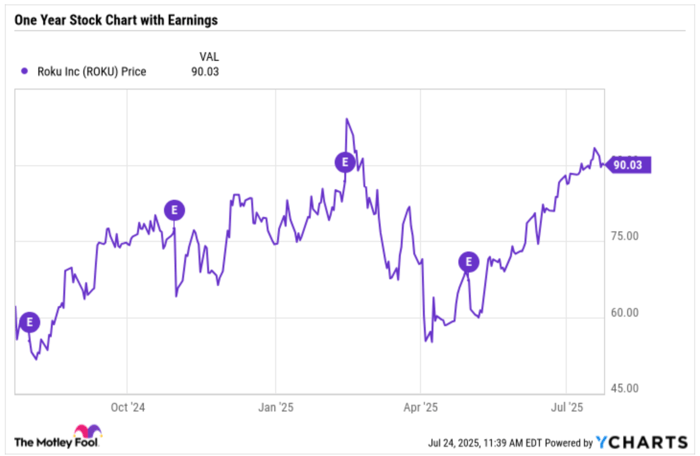Key Points
This tech leader is seeing growing demand for cloud services, yet its stock trades at just 14 times expected earnings.
A well-known athleisure superstar looks like it's oversold, and value investors should take a look.
This diversified apparel company could be at the start of a turnaround.
The stock market has shown incredible resiliency in 2025. After shaking off the trade wars and uncertainty for the economy, the S&P 500 is sitting close to new all-time highs. As August, which is historically a weak month for the markets, approaches, there are solid companies trading at reasonable valuations that are worth buying.
If you have $1,000 to commit to a long-term investment plan, read why three Motley Fool contributors like Alibaba (NYSE: BABA), Lululemon Athletica (NASDAQ: LULU), and VF Corp (NYSE: VFC) right now.
Where to invest $1,000 right now? Our analyst team just revealed what they believe are the 10 best stocks to buy right now. Continue »

Image source: Getty Images.
An undervalued tech giant
John Ballard (Alibaba): Shares of Alibaba are starting to climb out of the slump they've been in for the past few years. This is a great time to consider starting an investment in the tech giant. An improving economy in China and strong demand for the company's cloud services are major catalysts that could potentially double the share price within five years.
Alibaba's e-commerce marketplaces, Taobao and Tmall, are posting steady growth in 2025. The March-ending quarter showed these businesses growing customer management revenue by 12% year over year. This primarily comes from fees charged to third-party merchants that sell goods on these marketplaces, which creates very profitable revenue streams for Alibaba.
Alibaba has multiple levers to grow revenue in its e-commerce business. It credited recent growth from several initiatives, including the integration of its Cainiao logistics in its e-commerce business, in addition to new software service fees that helped capture a higher percentage of revenue from merchant activities.
Another catalyst supporting the stock's recovery is strong growth in Alibaba Cloud. Enterprises are adopting artificial intelligence (AI) services at a rapid rate. Alibaba said its AI-related product revenue has grown at a triple-digit rate for seven consecutive quarters. Its investments in AI are positioning the company for strong growth over the next decade.
Despite positive trends across the company, investors can buy shares at just 13.5 times this year's consensus earnings estimate -- a genuine bargain. The stock could double if investors pay a higher multiple of earnings that is consistent with the average S&P 500 price-to-earnings multiple of 30. Wall Street appears to be in the process of rerating Alibaba shares right now, making it a timely buy for the month of August.
Too cheap to ignore
Jennifer Saibil (Lululemon): Lululemon has been having a very tough time over the past few years, and its stock is down around 45% in 2025 alone. However, at the current price, it looks like the market is overselling it, and it's trading at a bargain price.
After many years of strong growth, that growth has decelerated sharply. There are several factors working against it, including pressure in discretionary spending and increasing competition. Lululemon helped create the athleisure movement, but there are low barriers to entry in its industry. In fact, in the premium athleisure space, customers are often looking for the next important and exclusive brand. On top of that, there have been worries about how Lululemon will be affected by tariffs. It's no wonder investors have been losing enthusiasm for the stock.
The 2025 fiscal first quarter (ended May 4) did little to quell the pessimism. Sales increased 7% year over year in the quarter, but comparable sales (comps) were up only 1%. Even worse, they decreased 2% in the Americas region. Management maintained its guidance for a mid-single-digit increase in revenue for the full year, but it revised its guidance down for full-year earnings per share (EPS).
However, there's reason for optimism. Lululemon stock trades at a P/E ratio of only 14, and at this price, it looks like a good value. Lululemon is highly profitable with an operating margin of 18.5%. That was down 1.1 percentage points from last year in the first quarter, mostly due to tariffs. However, it's still industry-leading, way above similar athletic wear and regular apparel companies.
The tariffs situation could be improving as the Trump administration continues to make deals with other countries. And in terms of other countries, although the Americas market has been disappointing, Lululemon is doing very well in China, where sales increased 22% over last year in Q1.
At the current price, it could finally be time to give Lululemon stock another shot, especially if you're looking for a value stock.
A turnaround is afoot at VF Corp.
Jeremy Bowman (VF Corp): With the broad market at an all-time high, it may be a good time for investors to look to beaten-down stocks that could be undervalued.
VF Corp. looks like one of those stocks right now. The apparel brand manager, which owns brands like Vans, The North Face, Timberland, and Dickies, has been one of the worst-performing apparel stocks in the market over the last five years. The stock is down about 85% from its peak in 2021.
Weakness at Vans, a dividend cut, and broader headwinds on consumer discretionary products all weighed on the stock, but VF Corp. showed signs of a turnaround in the fiscal Q1 earnings report on Wednesday.
While overall revenue was flat, the company delivered solid growth at all of its core brands except Vans, which is going through a "channel rationalization," meaning management is reducing the number of distribution points. However, Timberland was up 11%, and The North Face was up 6%. Vans, on the other hand, was down 14%, but the overall business is healthier than it might look.
If management can stabilize Vans and improve profitability, the company should be on good footing. Its adjusted operating loss was much better than expected in Q1, and management's guidance calls for full-year growth in adjusted operating income and free cash flow.
VF Corp. now trades at a price-to-sales ratio of just 0.5. That gives the stock upside potential if it can achieve a profit margin of just 5%, which would equal a price-to-earnings ratio of just 10 at the current P/S ratio.
For a company with a set of well-known premium brands, that should be achievable. If the turnaround continues to make progress, VF could double or triple from here.
Should you invest $1,000 in Alibaba Group right now?
Before you buy stock in Alibaba Group, consider this:
The Motley Fool Stock Advisor analyst team just identified what they believe are the 10 best stocks for investors to buy now… and Alibaba Group wasn’t one of them. The 10 stocks that made the cut could produce monster returns in the coming years.
Consider when Netflix made this list on December 17, 2004... if you invested $1,000 at the time of our recommendation, you’d have $625,254!* Or when Nvidia made this list on April 15, 2005... if you invested $1,000 at the time of our recommendation, you’d have $1,090,257!*
Now, it’s worth noting Stock Advisor’s total average return is 1,036% — a market-crushing outperformance compared to 181% for the S&P 500. Don’t miss out on the latest top 10 list, available when you join Stock Advisor.
See the 10 stocks »
*Stock Advisor returns as of July 29, 2025
Jennifer Saibil has no position in any of the stocks mentioned. Jeremy Bowman has no position in any of the stocks mentioned. John Ballard has no position in any of the stocks mentioned. The Motley Fool has positions in and recommends Lululemon Athletica Inc. The Motley Fool recommends Alibaba Group. The Motley Fool has a disclosure policy.























